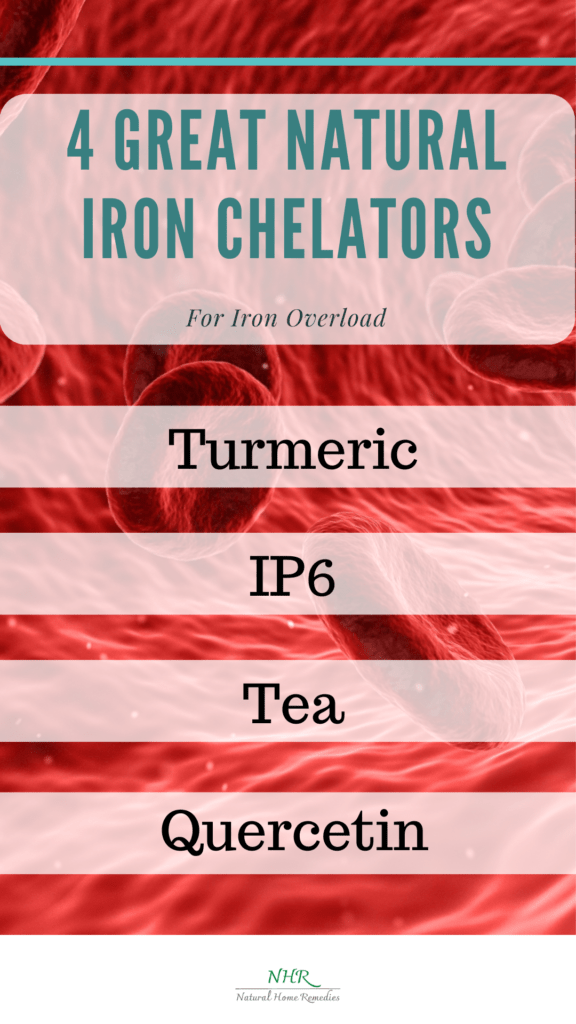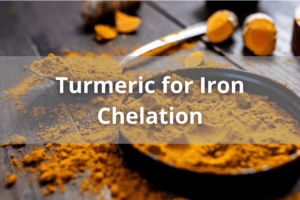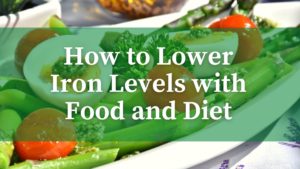 Natural Iron Chelators For Iron Overload
Natural Iron Chelators For Iron Overload
Being a Thalassemia Major, I have always been on the lookout for natural iron chelators to reduce Ferritin. Growing up, the only option I had was Desferal (DFX), but I would get a fever and a rash the next day. So I could never comply.
The past 20 years have been good for Thalassemics as we now have drugs like Deferiprone (DFP) and Deferasirox (DFO). There are oral drugs that have greatly improved compliance in Thalassemics who could not comply with Desferal. The quality and quantity of life for Thalassemia Major patients have greatly improved due to these, and Thalassemia is no longer considered a children’s disease as it used to be.
Other than medicines, I have always been interested in natural sources of iron chelation. I wrote this article to list some of the best natural chelators for iron overload.
Don’t forget to check out my article on How to Reduce Iron Levels with Food & Diet. It will help you out if you are trying to reduce your iron and ferritin levels.
Read more about Thalassemia Major in this article: Thalassemia Major: The Complete Guide
Curcumin: A Natural Iron Chelator in Turmeric
Curcumin is a naturally occurring chemical found in Turmeric and is responsible for its yellow color.
Research has shown Curcumin to be a highly effective iron chelator in different studies (read this article on turmeric for iron chelation). Other than that, it is also an excellent anti-inflammatory, which is great for thalassemia patients with joint pains from iron overload.
Adding Turmeric to your diet can be beneficial due to its potent antioxidant, anti-inflammatory, and free radical scavenging properties (Wiley Study on Curcumin). Talk to your hematologist about it and see how you can benefit from it.
I have been taking it in a supplement form that includes turmeric and black pepper to increase the absorption of turmeric. It’s called Turmeric Curcumin with BioPerine & Ginger 95% Curcuminoids 1950mg.
You can find it on Amazon or at your local nutrition store.
IP6: A Natural Iron Chelator in Grains and Seeds
IP-6, also known as Phytic Acid, is a naturally occurring component in grains, legumes, and seeds.
It is a natural antioxidant and has even shown iron chelation properties. It is also commonly labeled as an anti-nutrient as it hinders the absorption of minerals like calcium, copper, zinc, and iron from the diet. This exact property of IP6 is exactly what is helpful for Thalassemia Major patients (NCBI Study on IP6).
I use Nature’s Way Cell Forté IP-6 & Inositol, and you can easily find it on Amazon or at your local nutrition store.
Tea: Inhibiting Iron Absorption Naturally
Tea is my favorite item on this list. I have grown to love tea, and even now, I write this article while I have a cup of tea.
It has become essential for me after every meal, as it hinders the absorption of dietary iron. Even though I can’t quantify the results for myself, studies have shown that tea has tannins and oxalates, which inhibit the absorption of iron.
So I would recommend you add tea to your diet after every meal to inhibit iron absorption. Doesn’t matter if it’s green tea, black tea, chai tea, or coffee. Just make sure you are supplementing zinc, calcium, and other minerals, which will also be chelated by tea.
Alternatively, you can add Green Tea Extract to your diet as well. If you want a good product, I recommend going for Puritan’s Pride Green Tea Extract.
Quercetin: A Flavonoid for Iron Chelation
Quercetin is a flavonoid (plant chemical) found in fruits and vegetables.
Many studies have shown its iron-chelating properties (ScienceDirect on Quercetin). It is found in onions, apples, honey (read this article on how to buy pure honey), raspberries, red grapes, cherries, citrus fruits, and green leafy vegetables like kale, spinach, and cabbage.
You can also find it in supplement form on Amazon or from any nutrition store. I would recommend Jarrow’s Formula Quercetin 500 mg (affiliate link) as they maintain their quality standards, and are a trusted name. I haven’t used their Quercetin yet, but it is already on my shopping list for next month.
Conclusion
The focus of most Thalassemia Major patients is iron chelation therapy and we have some excellent drugs for that, like Desferal, Exjade, and Deferiprone. However, many natural sources of food serve as iron chelators, and we, as patients, can greatly benefit from consuming them daily and incorporating them into our daily diet.
So if you have iron overload due to any reason, you can greatly benefit from adding these foods and supplements to your daily diet. They are not only for iron overload from thalassemia or hemochromatosis. They can be used by anyone as they are natural and quite safe.
These foods not only help chelate iron but also strengthen the immune system and have high antioxidant activity, which helps reduce the oxidative stress that our bodies go through due to multiple transfusions.
I would recommend that you speak to your doctor about these natural iron chelators and start reducing your iron overload.
FAQs
Can natural iron chelators replace Desferal?
No, they should complement, not replace, prescribed treatments. Consult your doctor.
How can I reduce ferritin naturally?
Add chelators like tea after meals and curcumin to your diet, as outlined above.
Are natural iron chelators safe to combine with Deferasirox or Deferiprone?
Generally, yes, but always consult your doctor. Curcumin and tea can complement drugs like Deferasirox by reducing oxidative stress, but IP6 may affect mineral absorption, so timing and dosage need monitoring.
How long does it take for natural iron chelators to reduce ferritin levels?
Results vary, but studies suggest 3–6 months of consistent use (e.g., daily tea or curcumin supplements) may lower ferritin slightly. Track progress with your doctor through blood tests (NCBI Study on IP6).
What are the best foods for iron chelation besides tea?
Foods rich in quercetin (onions, apples, kale) and IP6 (grains, legumes) are great choices. Learn more in our guide on How to Reduce Iron Levels with Food & Diet.
Can natural iron chelators help with hemochromatosis too?
Yes, natural chelators like quercetin and IP6 can support iron overload management in hemochromatosis by inhibiting absorption and binding excess iron. Always pair with medical treatment.
Should I avoid certain foods while using natural iron chelators?
Limit iron-rich foods like red meat and spinach during meals with chelators (e.g., tea). Also, ensure you’re getting enough calcium and zinc, as IP6 and tea may reduce their absorption.
Disclosure: This article contains affiliate links. We earn a commission from qualifying purchases at no additional cost to you.



